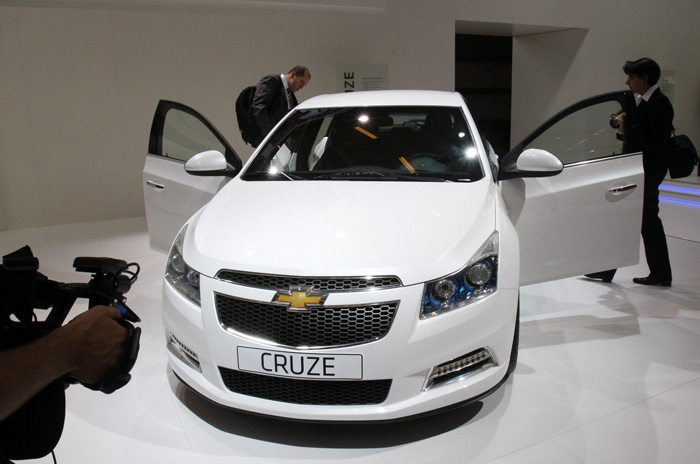DETROIT — General Motors’ U.S. sales rose 8 percent in July, led by fuel-efficient vehicles such as the Chevrolet Cruze. But the increase may not be the norm.
Analysts predicted only a slight rise in overall sales of new cars and trucks for July. Economic worries and a lack of discounts probably kept many buyers away, causing sales to sputter for the third straight month.
Jeff Schuster, executive director of global forecasting at J.D. Power and Associates, expects U.S. light vehicle sales to rise only 3 percent over last July, as high unemployment, low consumer confidence and shortages of some Japanese models discourage potential car buyers.
July’s numbers are expected to show that auto sales are faltering a bit after weaker sales in May and a lackluster June. Sales started strong this year, but have slowed as the economy’s growth sputtered and Japan’s earthquake caused shortages of popular cars built by Honda and Toyota.
“We’re still not back on the track of recovery yet,” Schuster said. “There’s definitely some weakness kind of looming out there right now.”
GM, which was among the first automakers to report results today, said its sales rose because buyers went for more efficient vehicles. Analysts say even though gas prices have dropped, most people expect them to rise again in the future.
The Detroit automaker said it sold 214,915 cars and trucks last month, including nearly 25,000 Cruzes. That could make the compact America’s top-selling car for the second month in a row. Sales of the Chevrolet Equinox and GMC Terrain small crossovers, which also get good gas mileage, rose about 80 percent.
GM Vice President of Sales Don Johnson said many customers decided to hold off buying cars last month because wrangling over raising the government’s debt ceiling added uncertainty to the economy.
“Uncertainty in our business is always bad for consumers,” Johnson said. “We’re just glad a solution has been reached.”
Car prices remain relatively high, too, for buyers who have become accustomed to big summertime discounts.
Automakers spent an average of $2,418 per vehicle on incentives, down 15 percent from last July, according to car pricing site TrueCar.com.
Send questions/comments to the editors.



Success. Please wait for the page to reload. If the page does not reload within 5 seconds, please refresh the page.
Enter your email and password to access comments.
Hi, to comment on stories you must . This profile is in addition to your subscription and website login.
Already have a commenting profile? .
Invalid username/password.
Please check your email to confirm and complete your registration.
Only subscribers are eligible to post comments. Please subscribe or login first for digital access. Here’s why.
Use the form below to reset your password. When you've submitted your account email, we will send an email with a reset code.